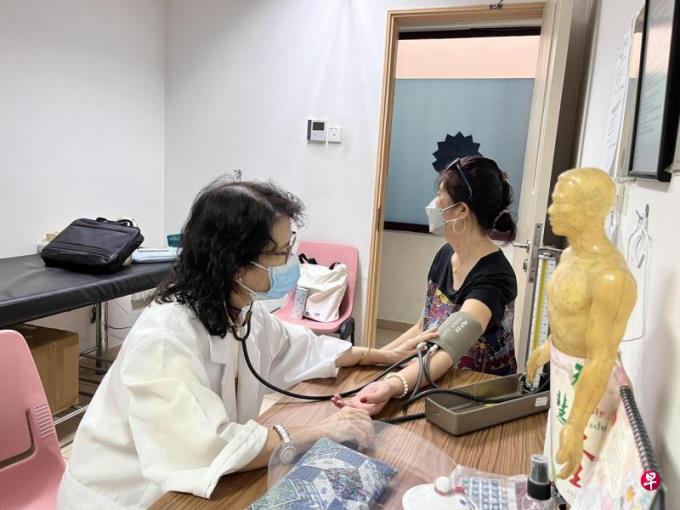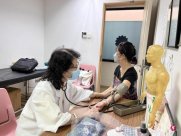
Minister of Health Wang Yikang attended the 50th anniversary dinner of the Volkswagen Hospital on October 27, which is undoubtedly vital to the development of local Chinese medicine.The speech involves three major aspects: education and training, preventive health care, and the synergistic effects with the mainstream medical system, which clearly outlines the official thinking of the future development of local Chinese medicine.
In terms of education and training, under the guidance of the Traditional Chinese Medicine Management Committee, the standardization of local Chinese medicine has been working for years, and it has also achieved considerable results.Training, assessment, certification, and registration of traditional Chinese medicine practitioners have a relatively complete mechanism to ensure that all registered Chinese medicine practitioners have undergone strict training and have a certain level of professional level, including theoretical and clinical experience.In addition to the two private Chinese medicine colleges, traditional Chinese medicine courses have also entered the university hall, and the enrollment standards and training have a college level.
Nanyang University of Technology has cooperated with Beijing University of Traditional Chinese Medicine since 2005 to set up a five -year dual degree course for biomedical science and Chinese medicine.This project has trained more than 450 graduates so far.From August this year, NTU independently offers the first Chinese Medicine Honorary Bachelor's Degree course. It is also the first bachelor's degree in TCM for the Chinese Medicine Management Committee certified by the Ministry of Health.This shows that local universities already have sufficient Chinese medicine training capabilities, and can also cultivate local Chinese medicine practitioners in the local area according to local conditions.
It is reported that this degree should be used to cultivate a new generation of TCM practitioners who adapt to changes through science and technology auxiliary teaching and the combination of theoretical and practical methods.The course also focuses on cultivating the concept of prevention of prevention of prevention and health care, and Chinese medicine practitioners with all -round thinking, so as to respond to the health SG program.This is in line with the needs of the rapid aging population in Singapore and the increase in chronic diseases of the elderly.
This move also shows that the Ministry of Health has settled in traditional Chinese medicine into the preventive health care system, appropriately used the expertise of Chinese medicine to cooperate with Western medicine to provide patients with more complete health care.To this end, Wang Yikang revealed in his speech that the government will implement the certification framework of Chinese medicine practitioners in 2026 to assist in identifying TCM practitioners with a higher professional ability as a basis for expanding the health SG program.
Incorporating excellent Chinese medicine practitioners into the health SG program is a very practical consideration.There are more than 3,400 registered Chinese medicine practitioners in Singapore, of which about 65%are still practicing. This is a medical resource that should be used well.Since the start of the health SG plan, more than one million citizens and permanent residents have joined, but they have not reached half of the target number, and only about one -third of those who are 40 to 59 years old have joined.This means there is still a lot of effort.At the same time, the official noticed that one -fifth of Singaporeans chose to see Chinese medicine, so Chinese medicine believes that Chinese medicine can be used as a useful contact to help more people join the plan.In this way, patients can not only enjoy the various benefits of planning, but also get the conditioning and care of Chinese medicine, which is really beautiful.
The development of local Chinese medicine has reached the standardization level. Therefore, the government is also confident that the acupuncture has been accepted by the international medical community, and it has further incorporated it into Singapore's entire medical system to obtain better medical and health careEffective.This is the result of long -term efforts and water to complete. However, in order to achieve the same collaboration between Chinese and Western medicine, I am afraid that it will need to go through a break -in process that breaks the prejudice and understand each other. The difficulty and challenges cannot be underestimated.
In any case, comprehensive above, it can be seen that the role of traditional Chinese medicine in the Singapore medical system has been further improved, although basically auxiliary characters.TCM has a long historical and special tradition in the local area. How to inherit is a question worthy of attention.Although the status of traditional Chinese medicine has improved, to inherit and promote Chinese medicine, the way out of the Chinese medicine curriculum graduates is still key.
A great tradition of local Chinese medicine is the concept of hanging pots. Many old Chinese medicine practitioners do medicine with this concept.Clinic, serving the crowd, regardless of income.But the times are different after all, and the living conditions have also greatly changed, especially for university graduates who have been trained in formal training.It is indispensable for good career prospects and reasonable income that meets living expenses. Otherwise, it is difficult for related courses to continue to attract enough excellent students to apply.In the long run, the mainstream medical system is necessary to treat traditional Chinese and western medicine more equally, and open the way for graduates of traditional Chinese medicine.




